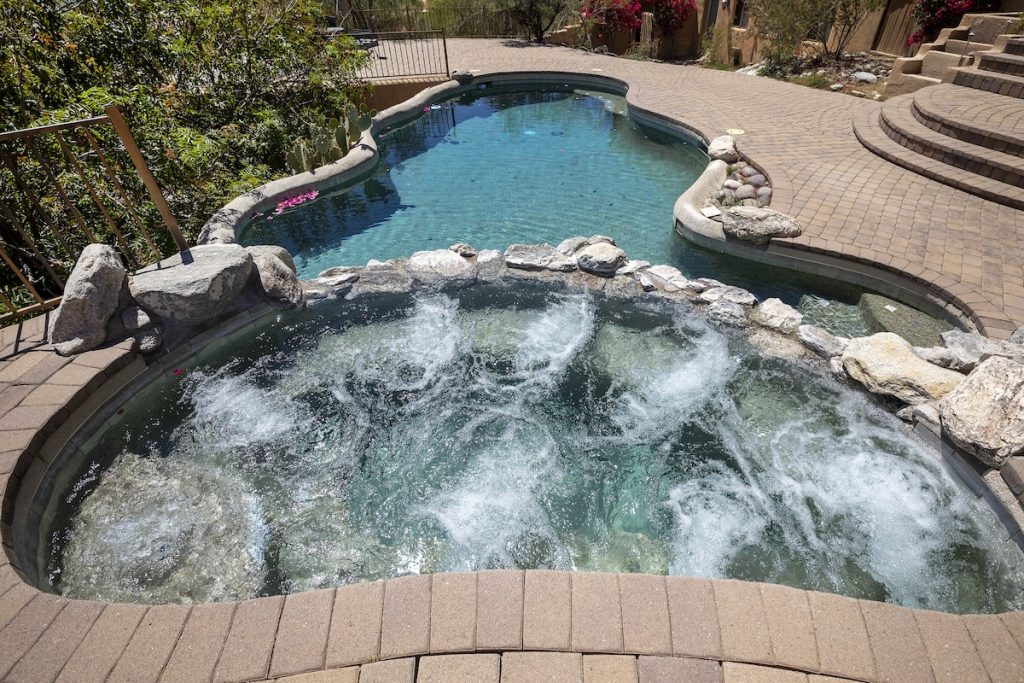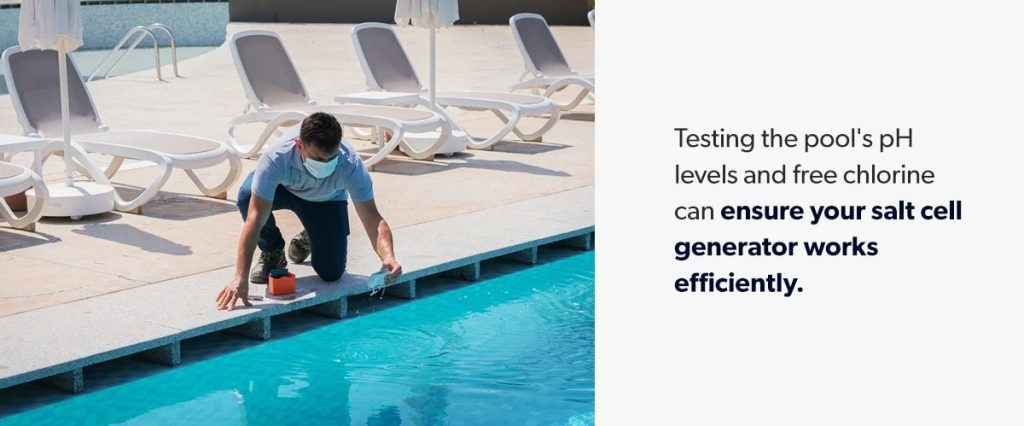

Maintaining your saltwater pool can be complex and require expert techniques and equipment. Saltwater pools can vary from home to home, and you want to ensure you use suitable maintenance solutions for your pool’s specific needs. You can keep your saltwater pool balanced and in outstanding condition with adequate care.
As a homeowner, you want to ensure your pool is in excellent condition. Saltwater pool maintenance can be an intricate and enjoyable task. Unlike chlorine pools, saltwater pools often require less maintenance. They may also require more specialized maintenance.
The essential factor is knowing how to maintain your saltwater pool to keep it in tip-top shape. Aside from less maintenance, saltwater pools can enhance your home aesthetic, and you want to ensure that it remains a valuable asset. With regular care, you can keep your saltwater pool clean and appealing. Here’s how to care for your saltwater pool:
Maintaining pool circulation is an essential and easy task for many pool types. Proper water circulation can ensure your saltwater concentration remains at the right level throughout the water. You can maintain your pool circulation by checking that your pool water can rotate through your filters. You can also check that your concentration levels are the same throughout your pool using various devices, like concentration detectors. Adjusting the jet angles can help you even out varying concentration levels.
You want to clean your saltwater pool daily or as frequently as possible. Regular pool and filter cleaning can make maintenance more manageable. Always recheck your pool water after heavy rains, storms and any other inclement conditions.
You want to ensure you clean your skimmer and empty your pool pump as part of your regular maintenance. A saltwater pool can corrode specific pool equipment, so be sure to use suitable tools for cleaning.
Avoid any splashing when brushing off debris or cleaning other pool elements to preserve your liner, which can lead to salt buildup on the outside of the pool. Hose down salt splashes to prevent salt damage and buildup. You also want to check that the pool is free from salt crystals. If crystals begin forming, it may mean something is wrong, and it’s best to check your manufacturer’s instructions for advice. You can also contact a professional for pool maintenance services.
Your pool’s chemical balance is essential for optimal functioning. Maintaining the chemistry can mean checking the alkalinity, salinity, calcium and stabilizer levels monthly. You can refer to your pool manual for suitable chemical levels:

Testing the pool’s pH levels and free chlorine can ensure your salt cell generator works efficiently. Salt cell generators that are out of balance can lead to algae buildup.
You want to test your pH levels and free chlorine with test strips or kits weekly to ensure consistent levels. Adjust your generator if chlorine levels are inconsistent. Add baking soda to raise your pool’s pH levels and muriatic acid to lower them.
Saltwater pools can require a dose of granular chlorine, especially if chlorine levels are out of balance. Low chlorine levels can impact the water’s color and appearance.
You can shock your pool with granular chlorine to help raise natural chlorine levels and bring the water back up to par. Shock treatment can vary depending on your saltwater pool type, and it’s essential to follow your manufactures manual for the best results.
Saltwater cells can accumulate mineral buildup like calcium and chlorine. Inspecting your pool cells every few months can help prevent mineral buildup:
You can turn off your salt generator and pool pump and remove and inspect your salt cell. You want to check the cell’s metal plates for white, flaky substances, which can indicate mineral deposit buildup.
You can put the cell system back together if there are no signs of mineral deposits. Check your cell systems every few months to ensure it is free from residues and doesn’t require replacement.
If you see a deposit built up on your cell, use your hands or a tool to remove any external debris without putting your hand into the cell. Hose down the cell to remove the remaining deposits.
Deposit buildup can remain on cells even after physical cleaning. In this case, you can dilute water and muriatic acid to clean the cell. Ensure that you wear protective gear like gloves, goggles and coveralls to prevent getting any solution on your clothes or body.
Chemical cell cleaning can damage your cell, so do it sparingly.
Here are some common saltwater pool maintenance questions we receive:
You’ve come to the right place if you want professional and reliable pool maintenance. Lotus Pools provides high-quality pool maintenance services. We offer recurring pool maintenance services like pH level testing, salt cell system inspection and general cleaning. Our professionals are skilled and professional and provide expert pool maintenance solutions and services to keep your saltwater pool in excellent condition.
Contact us to learn more!